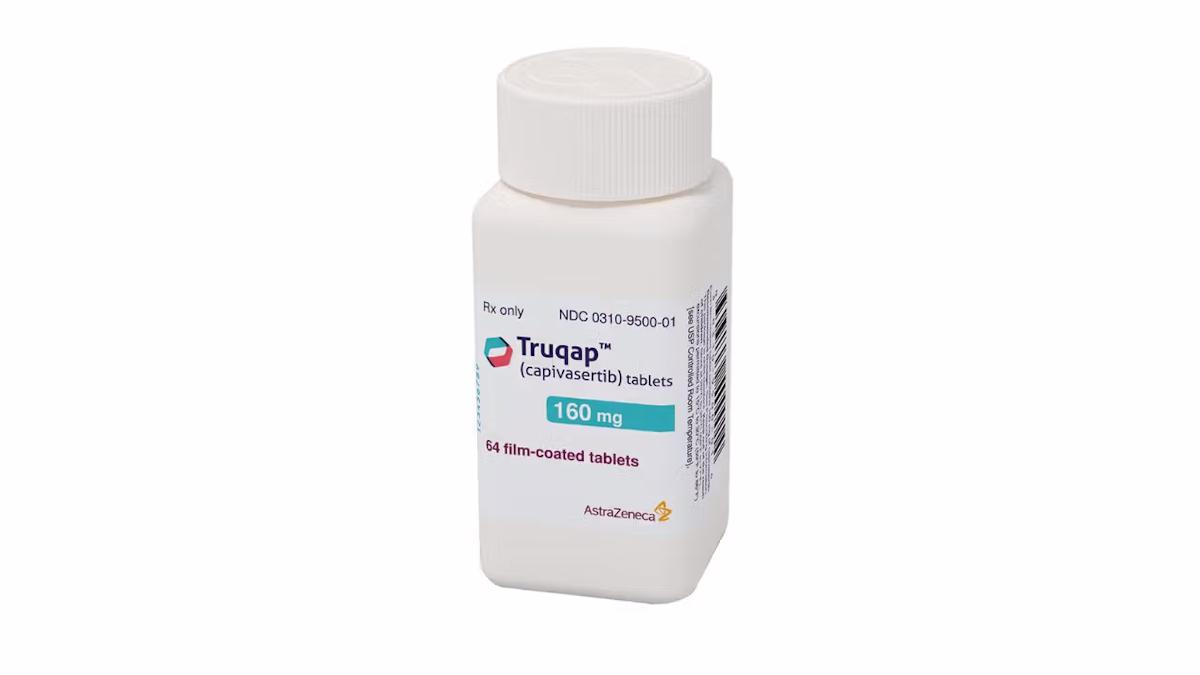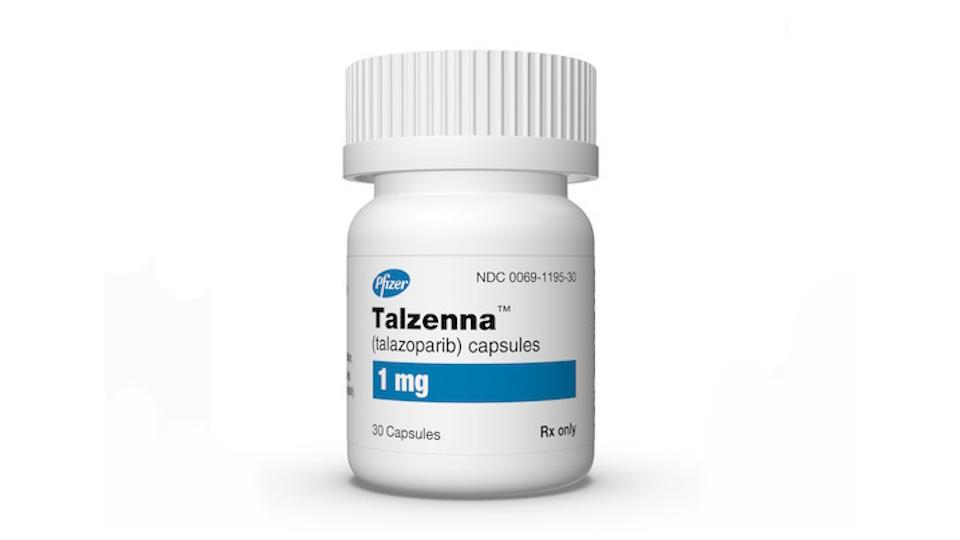Relief for AZ as Truqap hits the spot in prostate cancer

AstraZeneca had a disappointing trial readout with its AKT inhibitor Truqap in breast cancer in June, so unsurprisingly it is trumpeting a first-in-class win for the drug in prostate cancer.
The results of the phase 3 CAPItello-281 study showed that Truqap (capivasertib) improved radiographic progression-free survival (rPFS) compared to placebo in patients with PTEN-deficient de novo metastatic hormone-sensitive prostate cancer (mHSPC), a particularly aggressive form of the disease.
The study – which added Truqap or placebo to Johnson & Johnson's Zytiga (abiraterone) and androgen deprivation therapy (ADT), the standard first-line therapy for this type of cancer – also showed a trend towards improved overall survival (OS) with AZ's drug.
The data marks a return to form for Truqap, which was the first AKT inhibitor to reach the market last year after being cleared for use in combination with AZ's Faslodex (fulvestrant) for adults with hormone receptor (HR)-positive and HER2-negative locally advanced or metastatic breast cancer whose disease has progressed after at least one prior endocrine treatment or earlier adjuvant therapy.
Its approved label was also something of a disappointment for AZ, however, as regulators have restricted its use to patients with PIK3CA, AKT1, or PTEN alterations, and the company also suffered a setback with the drug earlier this year after it failed to improve survival in the CAPItello-290 study in triple-negative breast cancer (TNBC).
AZ's head of oncology R&D, Susan Galbraith, said this morning that the CAPItello-281 data shows that by targeting a driver of prostate cancer they "have been able to improve upon current therapies and demonstrate the potential role of this combination in an area of critical unmet need."
She added: "It will be important to see greater maturity in key secondary endpoints, including overall survival."
Capivasertib was billed as one of Clarivate's drugs to watch for 2023, with the potential to achieve more than $1 billion in sales within five years, and some analysts had pitched it as a potential $2 billion-plus product. Sales in the third quarter of this year came in at $125 million.
That prediction was, however, predicted on a broader label in the HR-positive, HER2-negative breast cancer population, as well as approval in follow-up indications like TNBC and prostate cancer.
Estimates for the frequency of PTEN mutations in prostate cancer vary widely, between around 15% and 60%, depending on the type and stage of the disease, but testing for the biomarker isn't widespread at the moment.
AZ said it will report the full data from CAPItello-281 at a future medical conference and will submit the data to regulators, with a view to extending the approved indications for Truqap.












